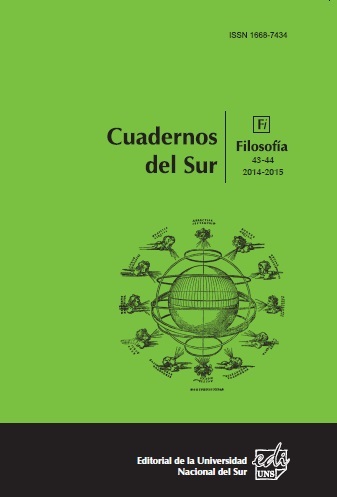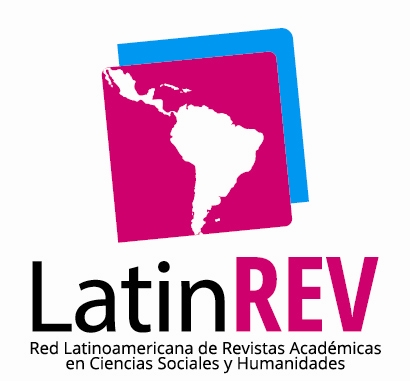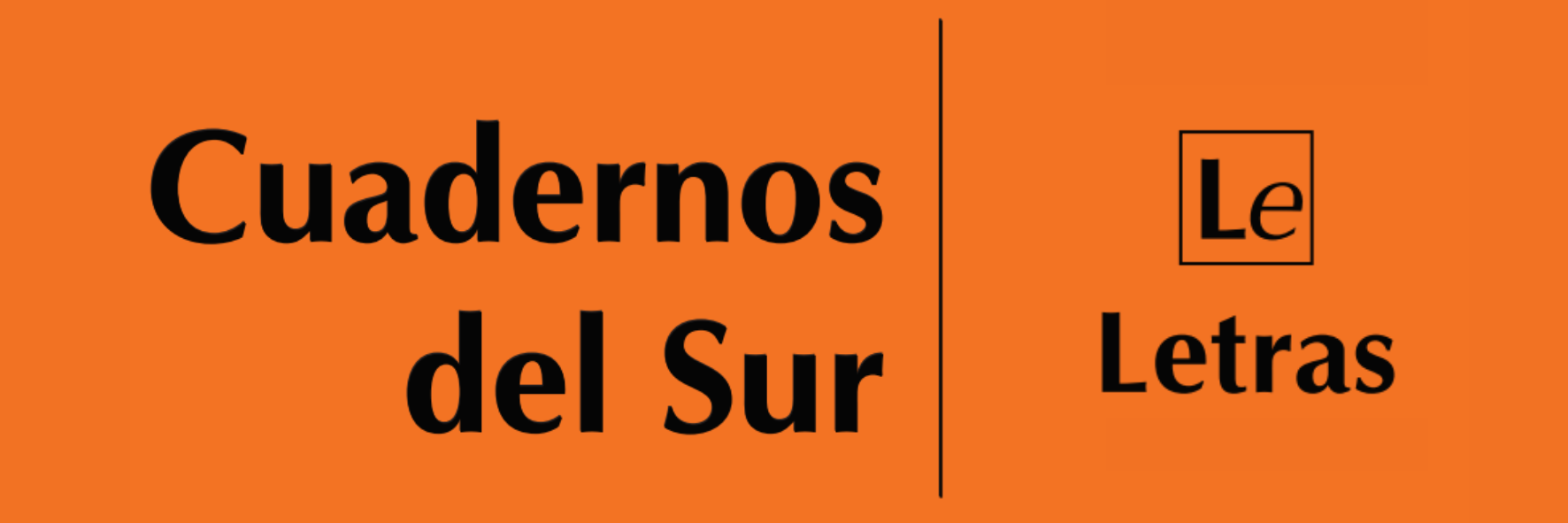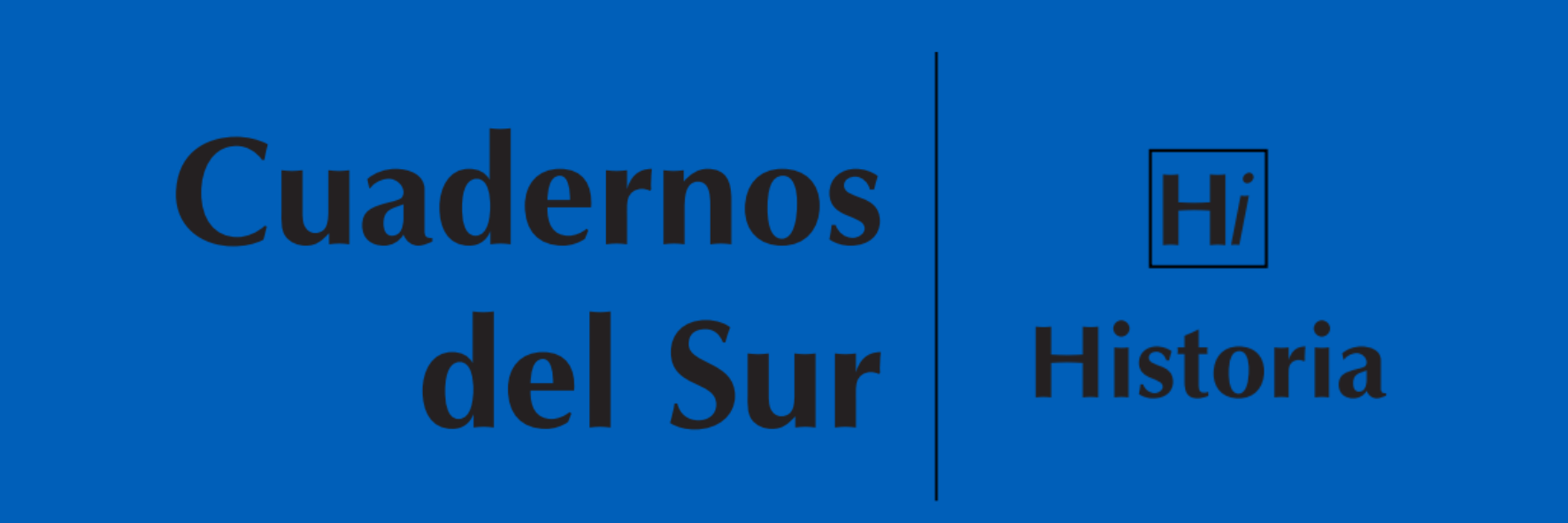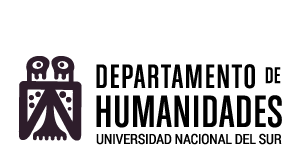Del Dios inadvertido. Una aproximación al pensamiento crítico
Keywords:
Critical theory, Modernity, MessianismAbstract
In critical theory, the unknown breaks the specularity of knowledge and suspends or repeals demands for recognition. There is criticism because the world is broken. Criticism is often cryptic: even if it seems clear, it is carried out in the atmosphere of a relatively twisted rhetoric. Now, that the world never ceases to close, met in its prom-ised specularity, is it the glory of men, or a fatal destiny which they would al-ways try to escape from? This question condenses much of the journey, the situation and the infl ections of critical thinking. For critical thinking, what it is isn’t everything. To think –that which is possible to fi nd not only in the great philosophy, but also and above all in the great art– is, in essence, to ignore the present. The critique is a critique of the present, questioning and challenging of the “what it is”. Criticism supposes and is held on a displacement. And a shift presupposes, in a more or less overt and more or less risky way, a loss of balance. In all criticism there exists, besides some initiatory excitement, a factor of vertigo and nausea. An explosive bond is established between criticism and alienation.
Downloads
References
Adorno, Theodor W. (1987), Minima moralia, Madrid, Taurus.
Adorno, Th. W. y Horkheimer, Max (1998), Dialéctica de la Ilustración. Fragmentos filosóficos, Trotta, Madrid, [trad. J. J. Sánchez].
Adorno, Theodor W.; Popper, Karl R.; Dahrendorf, Rale; Habermas, Jürgen; Albert, Hans y Pilot, Harald (1973), La disputa del positivismo en la sociología alemana, Barcelona, Grijalbo, [trad. J. Muñoz].
Arendt, Hanna (1998), Los orígenes del totalitarismo, Madrid, Taurus, [trad. G. Solana].
Benjamin, Walter (2007), Tesis de fi losofía de la historia, Madrid, Akal.
Bloch, Ernst (1979), El principio esperanza. Vol. 1, Madrid, Aguilar.
Bodei, Remo (1985), “Theodor Wiesengrund Adorno”, La cultura del 900, vol. 3., México, Siglo XXI editores.
Duque, Félix (2002), En torno al Humanismo. Heidegger, Gadamer, Sloterdijk, Madrid, Tecnos.
Espinosa Proa, Sergio (1999), La fuga de lo inmediato. La idea de lo sagrado en el fin de la modernidad, Madrid, Editorial Complutense.
----- (2007), De los confi nes del presente, México, Conaculta.
Hegel, G. F. W. (2009), Fenomenología del espíritu, Valencia, Pretextos, [trad. M. Jiménez Redondo].
Horkheimer, Max (2000), Anhelo de justicia. Teoría crítica y religión, Madrid, Trotta, [trad. J. J. Sánchez].
Kant, Immanuel (2013), ¿Qué es la Ilustración? Y otros escritos de ética, política y filosofía de la historia, Madrid, Alianza, [trad. R. R. Aramayo].
Löwith, Karl (2004), Historia del mundo y salvación. Los presupuestos teológicos de la filosofía de la historia, Buenos Aires, Katz, [trad. N. Espinosa].
Stiegler, Bernard (2002), La técnica y el tiempo. Vol. II: La desorientación, Ondarribia, Hiru, [trad. B. Morales].
Villacañas, José Luis (1997), “La tradición crítica de la Escuela de Frankfurt”, en Historia de la filosofía contemporánea, Madrid, Akal, pp. 323-350.
Vitiello, Vincenzo (1999), Cristianismo sin redención. Nihilismo y religión, Madrid, Trotta, [trad. M. Ramos Sánchez].
Downloads
How to Cite
Issue
Section
License
Copyright (c) 2014 Sergio Espinosa Proa

This work is licensed under a Creative Commons Attribution-NonCommercial 4.0 International License.
Aquellos autores/as que tengan publicaciones con esta revista, aceptan los términos siguientes:- Los autores/as conservarán sus derechos de autor y garantizarán a la revista el derecho de primera publicación de su obra, el cuál estará simultáneamente sujeto a la licencia Atribución-No Comercial 4.0 Internacional CC BY-NC 4.0.
- Los autores/as podrán adoptar otros acuerdos de licencia no exclusiva de distribución de la versión de la obra publicada (p. ej.: depositarla en un archivo telemático institucional o publicarla en un volumen monográfico) siempre que se indique la publicación inicial en esta revista.
- Se permite y recomienda a los autores/as difundir su obra a través de Internet (p. ej.: en archivos telemáticos institucionales o en su página web) una vez publicado su trabajo, lo cual puede producir intercambios interesantes y aumentar las citas de la obra publicada. (Véase El efecto del acceso abierto).

